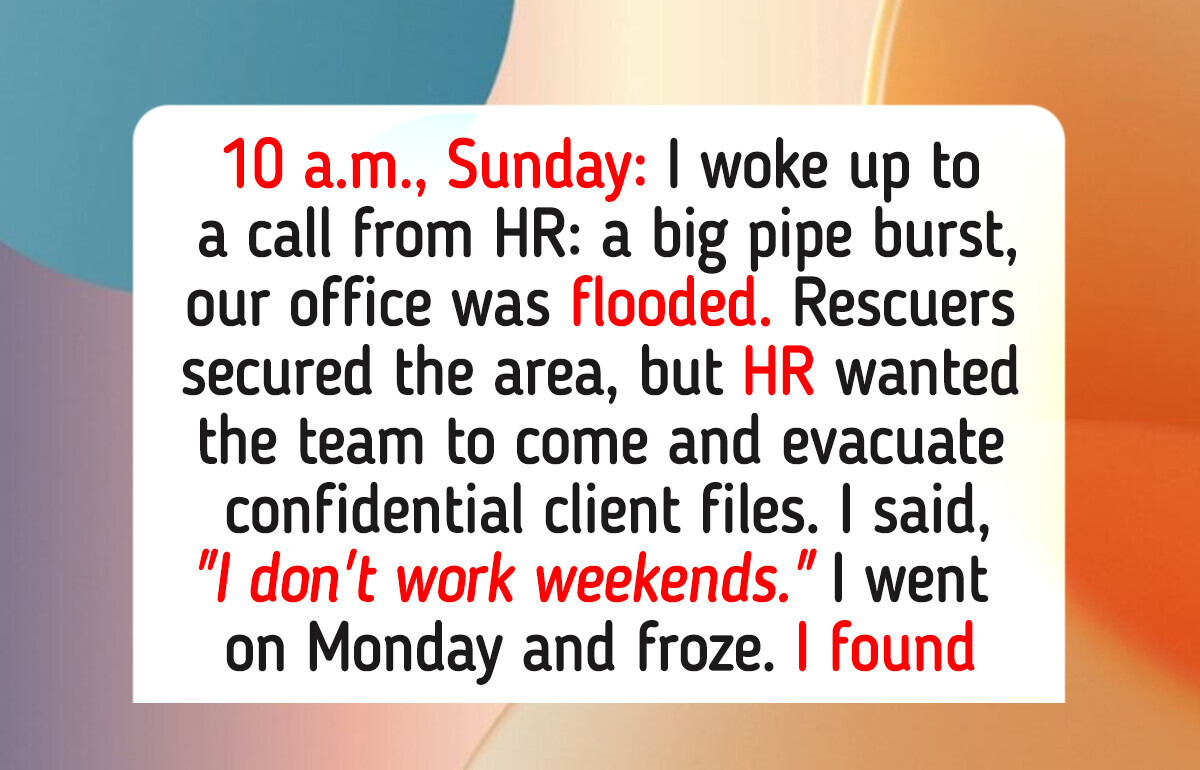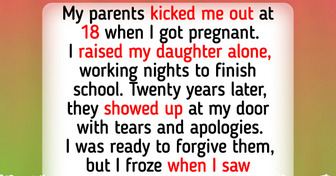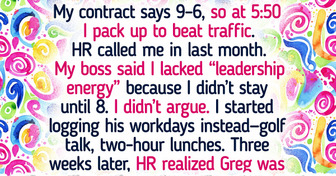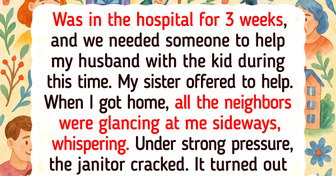You deserved to be fired. It was an emergency.
I Refused to Go to Work on the Weekend, Even If It’s an Emergency

Balancing work responsibilities with personal time is never easy, especially when unexpected emergencies come up. Some industries demand round-the-clock dedication, while others try to respect weekends and family life, which can lead to tough choices for employees. Recently, one of our readers sent us a letter about facing this exact situation at her law office.
The letter:
Hi Bright Side,
I (26, F) have been working at the same law office for almost a year.
Sunday, 10 a.m.: I woke up to a call from HR: a huge pipe had burst, and our office was flooded. Rescuers secured the area, but HR wanted the team to come and evacuate confidential client files. They were calling me to handle the folders of the clients whose cases I’d been working on, some of which contained sensitive information.
I said, “I don’t work weekends. Sorry.” I hung up, thinking that was the end of it.
On Monday, I went in and found my entire desk empty. All of my belongings had been moved.
At first, I thought the office must have temporarily relocated because of the flooding, but when I called HR, things took a different turn.
I froze when they informed me that my contract with the firm would not be renewed.
They said they expect full commitment from their employees and that I hadn’t met their standards.
For the 10 months I worked there, I was a devoted employee.
I just believe that my weekends are not meant to be spent in the office, even in an emergency, but now I’m doubting my decision.
Was I wrong to refuse to go in and help with the folders?
Best regards,
Elaine

Thank you, Elaine, for sharing your story with us. We understand how frustrating it must feel to give your best for months only to face this kind of setback.
Your experience raises important questions about work expectations and personal limits, and we’ve prepared some advice that may help you move forward.
Acknowledge the Difference Between “Work” and “Emergency”

Working at a place 10 whole months faithfully was put to an abrup test and this person failed miserably.
An emergency means extenuating circumstances, not every weekend.
I'd have fired their butt too.
Maybe being a barista somewhere with little responsibilities is a better fit.
You didn’t refuse a routine weekend assignment — you refused an emergency tied to client security. In law, protecting confidential files isn’t just “extra work,” it’s a core responsibility.
Action: For future roles, clarify with your employer how emergencies are handled. That way, you’ll know in advance when you’re truly off duty and when extraordinary circumstances require stepping in.
Reframe This as a Learning Opportunity, Not Just a Loss

How would you like it if your house was on fire, but the firemen said "we're sorry, but we don't work on weekends"? This was an emergency, and it sounds like you had no urgent reason why you couldn't go help, even for your own clients. I'd get rid of you if you worked for me, mainly because you lack commonsense.
Being let go feels brutal after months of dedication, but the lesson is clear: some industries expect 24/7 readiness.
Action: Use this experience as a filter. Look for firms or companies that clearly respect work-life balance in their policies. By asking targeted questions during interviews, you can avoid repeating the same mismatch.
Repair Your Reputation Before Moving On
Law is a small world, and word spreads quickly. Right now, colleagues might see you as “the one who refused to protect client files.”
Action: Reach out to a trusted mentor or supervisor from the firm. Explain calmly that your refusal was about protecting your personal time, not a lack of respect for client confidentiality. Even if the contract isn’t renewed, this may preserve references you’ll need later.
Build an Emergency Response Strategy for Yourself

I would of fired you too, but at least the company found out early that you could care less about helping in an EMERGENCY! As soon as you realize that any job you work at, is about being a team player and understanding the politics that is used, then you you might grow up. Being it was a law office and Your IMPORTANT files were at risk, I would of been there , Johnny on the spot.
You value weekends, but emergencies will pop up again in any demanding field.
Action: Decide in advance where you draw the line — for example, “I’ll respond if it’s a one-off crisis tied to client safety, but not for routine weekend work.”
Having a personal plan avoids hesitation and helps you respond in ways that won’t backfire professionally.
Another reader chose not to join a weekend team-building trip, and her choice led to an unexpected response from HR. Check out her story here.
Comments
Yta, for the reason that it was a bonafide emergency! A burst water pipe can do as much damage as a raging fire in terms of destroying property. Yes, files can be backed up, but in the legal profession, hard copies are king! All HR was asking of you is for help preserving CASE FILES, which are crucial for defending your clients; they were NOT asking you to prepare depositions for a case! By dismissing your firm's plight, you proved that you couldn't be relied on for your clients, so that's why you got shown the door! Now you have to start from scratch all over again, and good luck trying to get a referral from your former employer!
I'm assuming you haven't been working for too long in the field. Ten months is not all that long. There are always positives to be found in any situations. A few simple questions could help you gauge the seriousness of the situation. If you suggest you're in the middle of something you can't leave right now but will be available in two hours it suggests willingness to help while also understanding what's going on. They might reply with 'thanks, but we'll have it sorted by then' or 'is there no way you can get back to your event later? The files will be lost and it could cost xyz his court case'. From there you quickly evaluate what you are willing to do, and also potentially face repercussions. After all it seems this was the first such call in ten months, right?
You are 100% in the wrong. I am assuming you are an attorney with the firm. As such you have an ethical duty to protect tour clients information as well as to work the hours needed to provide competent legal services. Yes, this sometimes includes weekends. You dont get to say nope not working this weekend to meet this filing deadline, nope not securing my clients confidentially.
In fact you are ALWAYS on the job to protect confidentially.
You very much picked the wrong profession to have this attitude and this is from an attorney who doesnt work evenings and in almost 20 years of practice has worked like 4 Saturdays
YTA. You work in a highly regulated industry. Your company would be in deep kimchi if those records were destroyed. It’s a good thing you weren’t personally legally reliable as well.
I'm of two minds about this. If the employer takes and takes and takes without adequate compensation, then, yes, by all means any employee is within their rights to enforce boundaries regarding working outside of their assigned hours.
However, if this is a one off situation where the employer is desperately looking for emergency assistance and you as an employee are relatively near by and capable of helping, why wouldn't you? At the very least, it would project a positive image and show you care about the clients. And I am sure you would have been paid for your time. Ah, well, it was a lesson learned.
Related Reads
I Refuse to Follow My MIL’s Family Rules During My Vegan Pregnancy, and Now She’s Furious

14 Moments That Prove Kindness Is Not Weakness, It’s the Most Beautiful Human Trait

15 Stories That Remind Us the Beauty of Everyday Kindness

My Parents Abandoned Me at 18, Now They’re Begging for My Forgiveness

I Lost a $120K Job Over a Ridiculous Interview Test

I Refused to Be a Free Hotel for My Late Son’s Family: They Eclipsed My Life

I Refuse to Talk to My Friends After They Tricked Me Into Eating Meat—I’m Vegan

I Was Shamed by HR for Leaving at 5:50—So I Counted My Boss’s Watercooler Breaks

I Refuse to Return My Late Colleague’s Paycheck, Now His Widow Is Furious

18 Stories That Prove Living in an Apartment Is Like Having a Front-Row Seat to a Comedy Show

MIL Invited Us to FIL’s Bday But Expected Me to Pay $100—I Refused

14 People Who Just Went With the Flow and Ended Up With a Story Worth Telling

